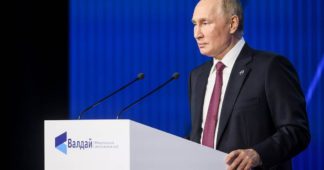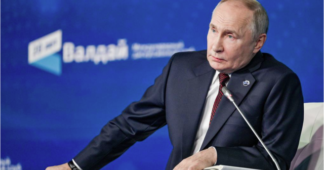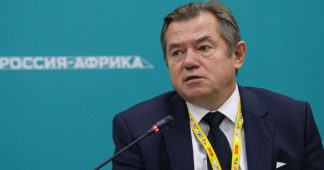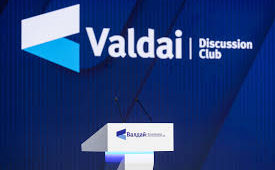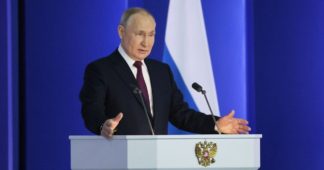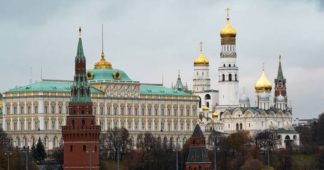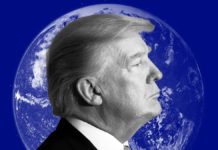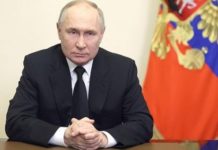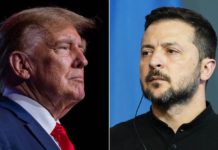Sochi, Russia, by Dimitris Konstantakopoulos
Last week, I was invited to attend the annual Valdai Forum conference. The Valdai Forum is one of the most significant global think tanks and its conferences are held in Sochi, in the Russian Caucasus. This year’s conference, attended by around 140 delegates, provided a unique opportunity to meet with distinguished figures from the Russian government, intellectual circles, and President Vladimir Putin himself, along with numerous scholars and politicians from across the world. It was here that one could more acutely sense the pulse of a world that is no longer confined to the stifling constraints and “sanctions” imposed by the collective West—sanctions that often seem to hurt the West itself and limit its perceptions rather making harm to anyone else. At the Forum, participants had the chance to meet representatives from the emerging “global majority”—a term introduced by the Russian hosts during this session of the Forum. These were representatives from a diverse and vibrant array of nations—Chinese, Indian, Latin American, African, Arab, and others—the new great powers and smaller nations that are rising on the global stage, all sending the message to the ever-arrogant West that they will no longer tolerate its hegemony. Notably, the Forum also hosted critical intellectuals from Western countries.
The Forum presented a valuable platform for discussing a range of pressing global issues, from climate change and artificial intelligence to the war in Ukraine, the US elections, and the ongoing genocide in Palestine— essentially covering almost all of the major global problems, with contributions from some of the world’s best experts.
On the final day, delegates had the opportunity to hear and engage with President Putin for over four hours. I believe that a multipolar world requires an economic model distinct from the one that prevailed during the era of unipolarity. With that in mind, I asked him the following question:
“ Mr. President, I come from Greece – a country, I am sure you will agree with me, that has no other options than to remain a friend and a brother of Russia for reasons which we cannot escape. They are part of our deepest cultural and historical identity. My question is the following: forty years ago, both the European welfare Keynesian capitalism and the Soviet hyper-centralised system collapsed. During the four decades that have passed, we have seen the multiplication of economic crises, wars, ecological problems, and many other problems. I wonder if the time has not come to orient ourselves towards a kind of planned economy at the national, regional and international levels. I do not mean the sclerosis of the past, so to say, a little bit of military socialism. I mean a system like the one you described, a combination of market and plan, a system like the one you tried to apply in your country just as it was some years after the October Revolution with a new economic policy, even to introduce some elements of “socialism”, as you referred to in your revolution at the beginning of your intervention” (In the beginning of his speech at the Valdai conference, which coincided with the anniversary of the October Revolution, Mr. Putin hailed its “global” significance, comparing it with the significance of the Dutch, the English and the Great French Revolution and characterizing as a milestone of world history. It was the first time since 1991 that a Russian leader spoke that way about the Russian Revolution).
President Putin has answered saying that “the more acute the crisis, the more planning is required, because greater state intervention is required to address the emerging problems. But as wealth and accumulated resources grow, calls for a purely market-based approach become louder. Then, let’s imagine, liberals and democrats come in and start spending all that was amassed by the conservatives. Then some time passes, and crises of overproduction emerge again – notionally, or crises related to it, and the whole thing repeats over and over again, everything comes full circle.
“Each country has the sovereign right to shape its own economic policy. China has found these opportunities. And do you know why it succeeded? Largely because China is a sovereign state.
“However, many of today’s economies, for various reasons and due to their commitments within economic or military-political alliances, have voluntarily given up part of their sovereignty. As a result, they are unable to make independent decisions in areas like the economy or their security. I am not urging anyone to do anything; I am simply responding to your question.
“At some point, having the drachma, a national currency, might have been a reasonable choice, because it would allow some regulation of social processes, even if through inflation, and help ease social tensions rather than placing the entire burden of economic challenges on the population.
“However, Greece once chose a different path, subordinating itself to regulation through a single currency and economic decisions made in Brussels. That is not our concern; it is the sovereign choice of the Greek state. I cannot say what is the best way to proceed under these conditions. But some of my friends and colleagues from the European Union – yes, I still have a few – have told me that more binding decisions are now made in Brussels for EU member states than were made by the Supreme Soviet of the USSR during the Soviet Union’s existence.
This has both pros and cons, but that is not for us to judge.”
